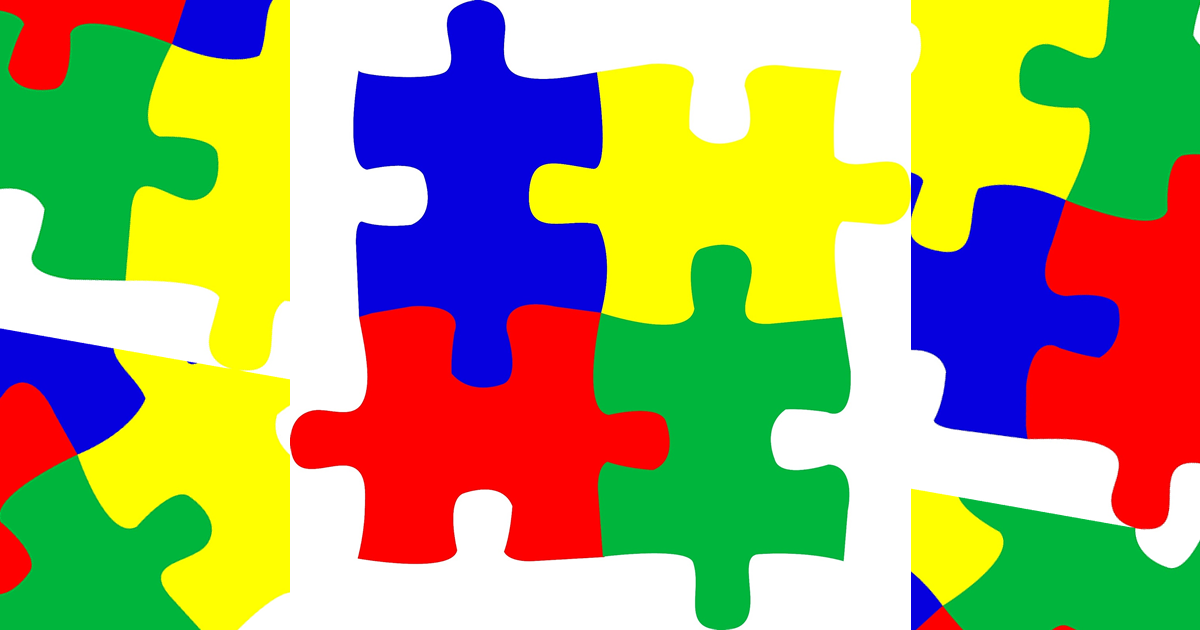
According to the CDC, 1 in 68 children in the United States have autism. While there has been an improvement in the definition of autism spectral disorder (ASD) and better efforts in diagnosis, there are still many myths that still prevail in confusing those diagnosed and their families. Here are some myths that you might have heard about autism and hopefully they can be put to rest.
Myth #1: Those with Autism Are Incapable of Socializing.
It might appear to outsiders that people with autism do not want to make friends or socialize with others – especially children who may have no understanding of autism. However, in many cases, this is just not true, and they are actually unable to communicate their want for a friendship in the same manner as someone without autism. This can cause those with autism to not bond quickl in a social manner, but many are capabe of devoloping strong social ties. This is especially true for autistic indidivuals that receive proper treatment for handling social situations.
Myth #2: Autistic Individuals Cannot Feel or Express Emotions.
While individuals with autism are completely able to feel the same emotions that people without autism have, they do not always communicate those emotions in the same ways. They also tend to perceive the expressions of others differently.
Myth #3: People with Autism Do Not Understand Others Emotions.
Autism can affect a person's ability to understand unspoken language (i.e. body language or tone of voice). This can cause someone with autism to not pick up on unspoken cues that a friend or family member might be sad or expressing sarcasm. However, when emotions are presented in a more direct form, those with autism are fully able to feel empathy and compassion for others.
Myth #4: People with Autism Have Low IQs.
While it does have its limitations, many with autism have normal to high levels of intelligence. Those with autism may struggle with tasks that those without autism find simple, but they might quickly master complex tasks that others find too difficult. They are capable of exceling in numerous fields and go on to earn college and graduate degrees and work in a variety of industries.
Myth #5: People with Autism Are Savants
There is a higher prevelance of those with autism to have savant abilities; however, this is only about 10% of the population. It has been noted that some do present what is known as “splinter cells” - meaning skills in one or two areas that are higher than their overall performance abilities. Realistically speaking, though, those with autism are no different than those that do not fall into the spectrum, and one person can be completely different than another person with autism.
Myth #6: If a Person Has Autism, They Will Grow Out of It.
Actually, autism is a neurological disorder that affects brain development. While it is possible for many to gain tools to help them live with autism, it is still a lifelong condition, and recent research has shown that when children are diagnosed earlier their lives can vastly improve as they get older.
Myth #7: Autism Only Affects the Brain.
Research shows those with autism also have gastrointestinal disorders, food sensitivities, and many allergies.
Myth #8: Autism Is Caused by Vaccines.
The only study ever connected autism with vaccinations has since been retracted. There is no evidence that autism is caused by vacines.
Myth #9: Autism Is Caused by Environmental Factors
Although the exact cause of autism has not been determined, it more than likely is a result of genetics. Studies have shown that if parents to one child with autism have a second child; that child is more likely than the general population to also develop autism. Also, if one child in a set of identical twins has autism, the other twin has a 90% chance of developing autism.
Myth #10: Autism Is Caused by “Poor Parenting.”
Many years ago it was believed that “refrigerator mothers,” or mothers that reacted coldly to their children would case autism. This has long been debunked, and it is known that parental behavior before, during, and after pregnancy does not cause an autism spectral disorder.
Myth #11: A Person with Autism Is Violent
There have been cases reported of those with autism acting violently; however, these acts are typically a result of sensory overload or emotional distress. It is unusual for those with autism to act violently or pose any kind of risk to society.
Myth #12: Children with Autism Cannot Become Successful Members of Society
Today there are plenty of individuals with autism that function absolutely fine in society. They lead both successful work and personal lives.
Myth #13: Autism Can Be Cured
There are many therapies and treatments for helping autism on a case by case basis; however, there is currently no cure for autism spectrum disorders.
Resources:
Autism Speaks Official Blog “11 Myths About Autism”
PBS “Autism Myths and Misconceptions”
Johns Hopkins School of Education “Autism Spectrum Disorders: Myths and Facts”